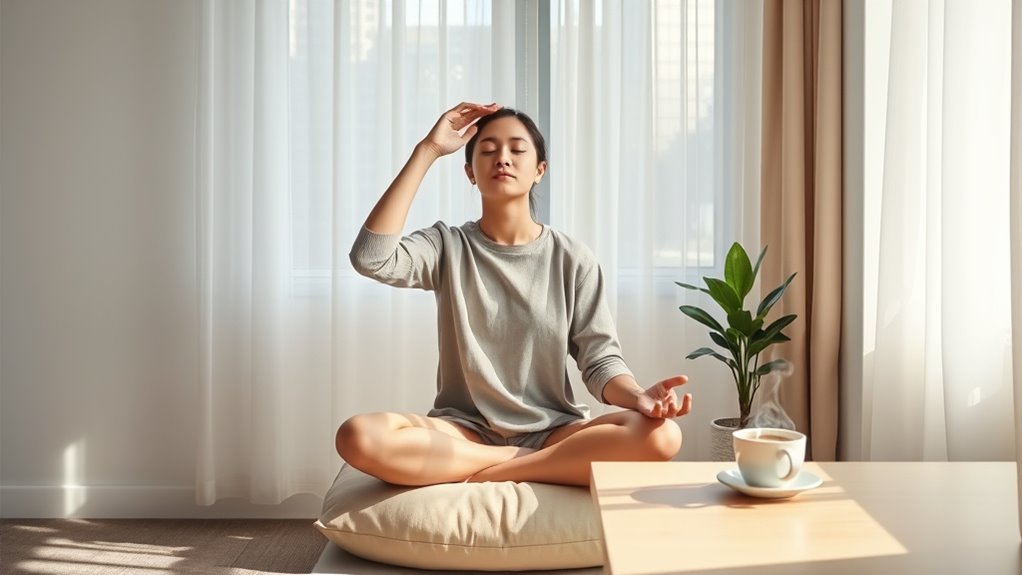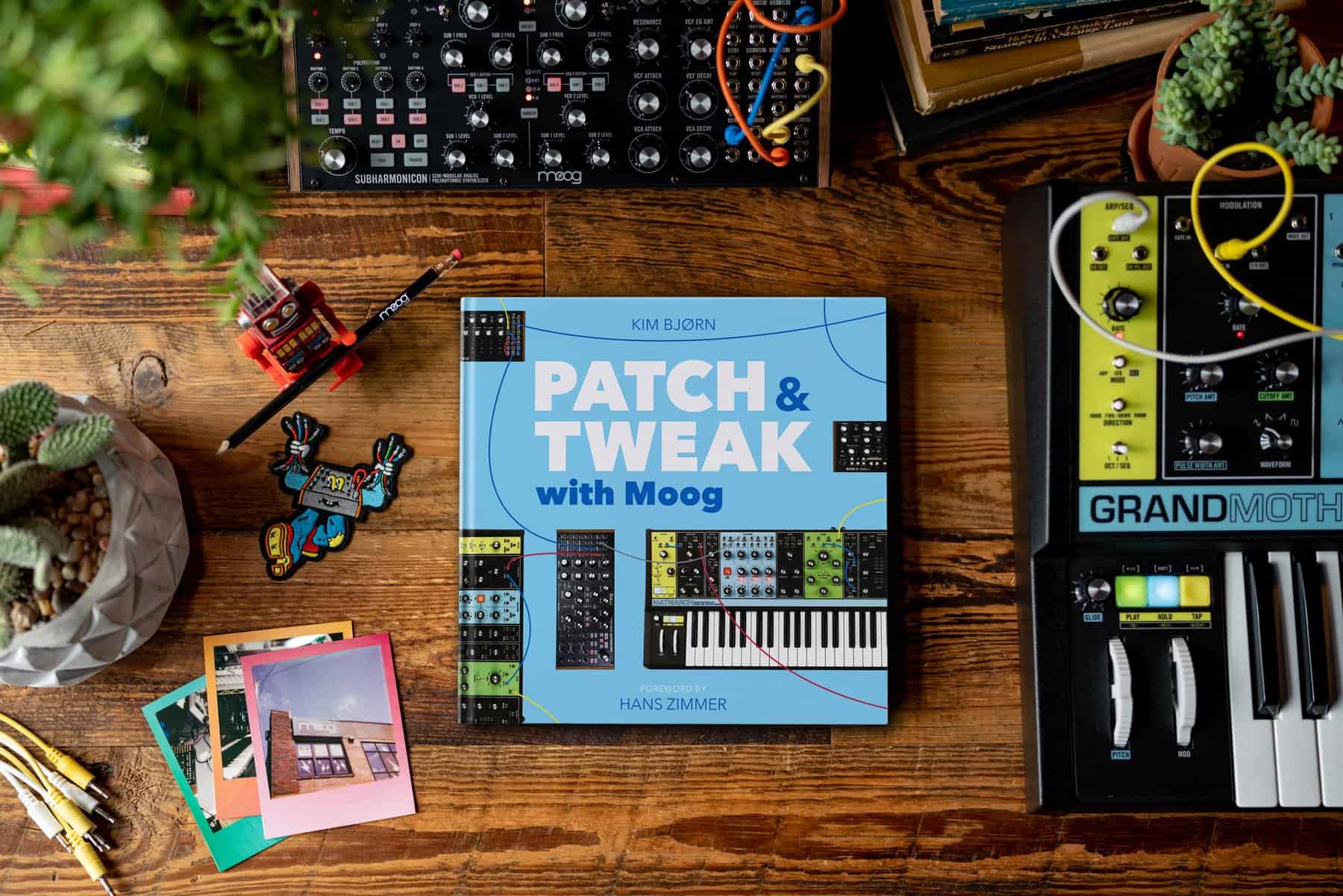Many overlook simple, effective stress reduction habits that pros use daily. These include quick micro-meditations throughout the day, like pausing to breathe or stretch, and incorporating mindful breathing into routine tasks such as washing dishes or commuting. Prioritizing sleep with calming evening rituals and creating a relaxing environment also make a big difference. If you want to discover more ways to stay calm and resilient, stay tuned—you’re about to learn powerful strategies.
Key Takeaways
- Incorporate micro-meditations throughout the day to manage stress without lengthy practices.
- Use mindful breathing during routine tasks like commuting or washing dishes for instant calm.
- Establish consistent evening rituals—reading, stretching, or listening to soothing music—to enhance sleep quality.
- Optimize your sleep environment by reducing screens, caffeine, and stressors before bed.
- Regularly utilize online resources and techniques to build resilience and maintain long-term stress management habits.
The Power of Micro-Meditations Throughout the Day

Even in the busiest moments of your day, taking a few seconds to pause and breathe can markedly reduce stress. Micro-meditations are perfect for this, allowing you to reset quickly. Start by making mindful snack choices—opt for a calming tea or a handful of nuts—and focus on the taste and texture. Incorporate brief body scans into your routine; for example, while waiting in line or during a quick break, check in with how your body feels, relaxing tense muscles. These small practices help you stay grounded and present, reducing stress before it builds. Incorporating stress management techniques into your daily routine can further enhance your resilience to stress. You don’t need extensive meditation sessions—just a moment to breathe, be aware, and reset your mental state. Over time, these micro-meditations can markedly improve your overall stress management.
Incorporating Mindful Breathing Into Routine Tasks

Building on the idea of quick stress resets through micro-meditations, integrating mindful breathing into your routine tasks can make a significant difference. You can practice mindful breathing during everyday activities, making them more calming and centered. For example, while washing dishes, pause to focus on your breath, inhaling deeply through your nose and exhaling slowly through your mouth. This helps break the cycle of stress and brings awareness to the present moment. To make it easier, try:
- Taking a deep breath before answering emails
- Pausing to breathe deeply during a commute
- Focusing on your breath while waiting in line
Engaging in mindful breathing can also enhance your overall meditation practice, deepening your sense of tranquility and connection.
Prioritizing Sleep and Creating Evening Unwind Rituals

Prioritizing sleep and establishing evening unwind rituals are essential steps to reduce stress and improve overall well-being. Creating a consistent bedtime routine helps signal to your body that it’s time to relax and prepare for rest. Incorporate calming activities like reading, gentle stretching, or listening to soothing music. Pay attention to your sleep environment by making it dark, cool, and quiet—these factors markedly influence sleep quality. Avoid screens and caffeine before bed, as they can interfere with your sleep cycle. Developing a routine and optimizing your sleep environment make it easier to wind down and fall asleep faster. Additionally, engaging in stress reduction techniques such as deep breathing or meditation can further enhance your relaxation. Over time, these habits reduce stress levels, leaving you refreshed and better equipped to handle daily challenges.
Frequently Asked Questions
How Quickly Can Micro-Meditations Reduce Stress Levels?
Micro-meditations can reduce stress rapidly, often within just a few minutes. By focusing on deep breathing or mindfulness for as little as 2-5 minutes, you can experience a quick drop in stress levels. This illustrates how effective brief meditation sessions are, making them a practical tool for managing stress during busy days. The key is consistency, which enhances meditation effectiveness and keeps your stress levels in check.
Are Mindful Breathing Exercises Effective for Severe Anxiety?
Mindful breathing exercises are highly effective for severe anxiety because they help calm your nervous system and promote relaxation. When you focus on your breath, you activate your body’s relaxation response, which can profoundly reduce anxiety levels quickly. Incorporate mindful breathing into your routine to experience steady anxiety relief, especially during intense moments. Consistent practice strengthens your ability to manage stress and keeps anxiety from overwhelming you.
What Are Simple Ways to Improve Sleep Quality Instantly?
To improve sleep quality instantly, start by optimizing your sleep environment—make sure your room is dark, cool, and quiet. Establish a calming bedtime routine, like reading or gentle stretching, to signal your body it’s time to sleep. Avoid screens and caffeine before bed, and stick to a consistent sleep schedule. These simple steps create a relaxing atmosphere that helps you fall asleep faster and enjoy better rest.
How Long Does It Take to See Benefits From Evening Rituals?
You can start noticing benefits from evening routines within a few days to a week. Incorporate relaxation techniques like deep breathing or meditation, and establish consistent sleep habits. Using calming activities before bed, such as reading or gentle stretching, helps your mind and body unwind. Over time, these evening routines improve sleep quality, reduce stress, and boost overall well-being, making it easier to fall asleep and wake up refreshed.
Can These Habits Replace Professional Stress Management Treatments?
You can’t rely solely on natural remedies and social support to replace professional stress management treatments. While these habits can markedly reduce daily stress, they might not address underlying issues or severe anxiety. Staying vigilant, recognize when stress becomes overwhelming, and seek professional help when needed. Combining these habits with expert guidance offers the most effective approach, ensuring you don’t overlook critical aspects of your mental health.
Conclusion
Don’t overlook small stress-busting habits—they’re the secret ingredients to a calmer life. Just like tiny drops fill a bucket, these micro-meditations, mindful breaths, and quality sleep build a fortress against daily chaos. When you weave these practices into your routine, you transform stress from a storm into a gentle breeze. Remember, consistency turns small steps into mighty waves of tranquility—so start today and watch your peace grow.









